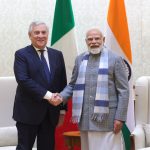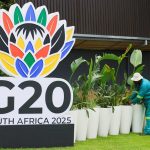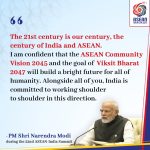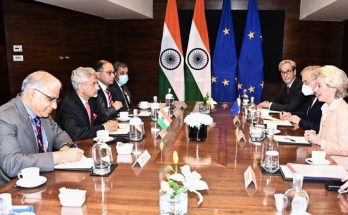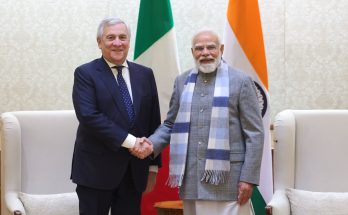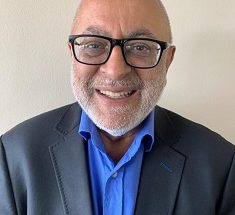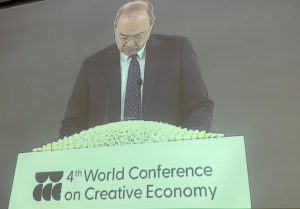
TASHKENT: Creativity, Culture and Innovation. This trinity of themes frames the 4th World Conference on Creative Economy (WCCE), which opened in the Uzbek capital Tashkent on October 2. The 4th edition of this marquee event titled “Inclusive Creativity: A Shifted Reality,” has brought together over 2,000 artists, innovators, and leaders from more than 80 countries to explore the future of creativity in a world rapidly transformed by advancing technologies, particularly artificial intelligence (AI).
Inaugurating the conference, Uzbekistan’s Prime Minister Abdulla Aripov, with the elite of the creative fields in attendance, set the tone by underlining the growing importance and expansion of creative and cultural industries worldwide. The conference will give a strong impetus to creative industries. “In the 21st century, the main driver will be creative economy,” he said. Creative industries have a special place in Uzbekistan’s economy accounting for over 100,000 jobs,” he said while stressing the importance of digital technologies in advancing creative economy.
Organized by the Uzbekistan Art and Culture Development Fund, the WCCE, to be held on October 2-4, aims to foster international cooperation and elevate creativity as a driver of inclusive and sustainable economic growth. This marks the first time the conference will be held in Central Asia, highlighting Uzbekistan’s growing prominence on the global stage of creative industries.
Spotlight on AI and Creative Professions
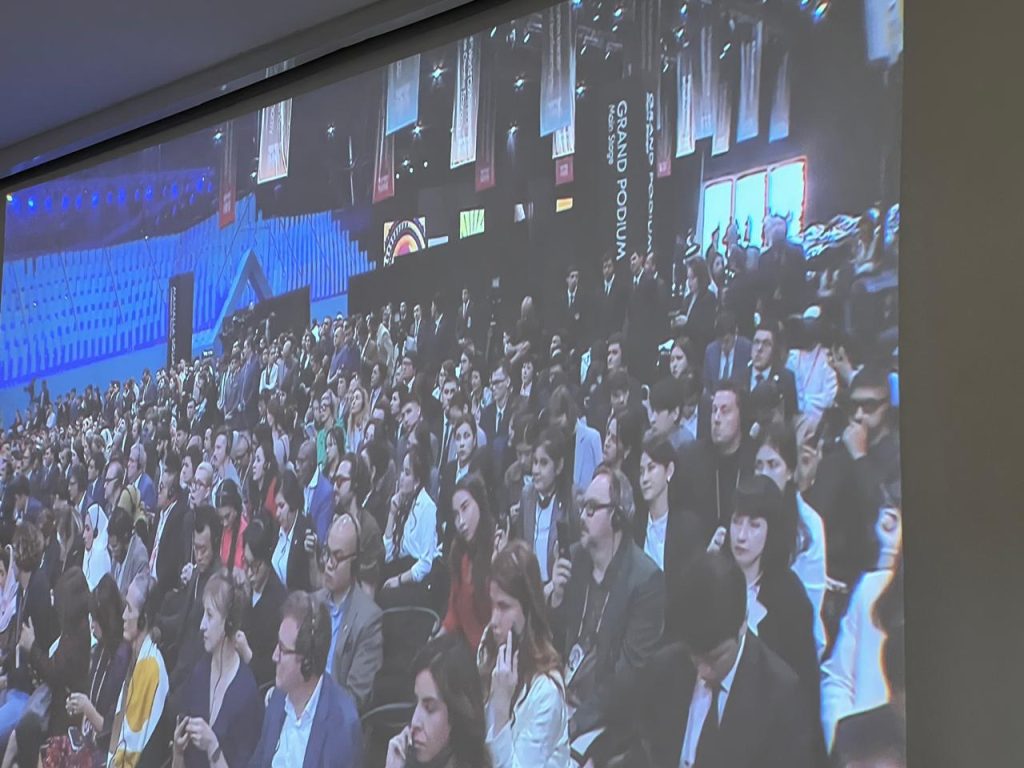
One of the key themes of this year’s conference is the impact of AI on the creative economy. With AI poised to disrupt industries worldwide, the event will address concerns about job losses and the ethical challenges it presents. By 2025, AI is expected to replace 85 million jobs globally, many within creative fields. However, it also opens up new opportunities for sectors like traditional crafts and creative production, which continue to flourish in this evolving landscape.
Uzbekistan’s Prime Minister Shavkat Mirziyoyev’s commitment to advancing the creative economy is evident in Uzbekistan’s efforts to draft new legislation and policies aimed at supporting the creative sector through 2030. These initiatives, developed in collaboration with international bodies such as the United Nations and the World Intellectual Property Organization, signal Uzbekistan’s ambition to position itself as a leader in creative industries and smart technologies.
A Global Platform for Change
The WCCE 2024 will tackle six critical sub-themes: Workforce Dynamics, The Rise of Creative and Smart Cities, The Future of Creative Education, Arts and IP in the Age of AI, Inclusively Sustainable Futures, and The Evolution of Creative Lifestyles. These topics reflect the diverse challenges and opportunities within the creative economy, from navigating AI’s impact on employment to building smart cities that foster creativity and innovation.
Participants at the conference will engage in seminars, workshops, and exhibitions that delve into these topics. A ministerial meeting will also provide a high-level platform for global leaders to share strategies for fostering creativity and innovation in their respective countries. The conference will also mark the opening of new art residencies at the Centre for Contemporary Art in Tashkent, further showcasing Uzbekistan’s dedication to cultivating a vibrant creative community.
The creative economy, often referred to as the “orange economy,” is a vital sector that blends cultural, social, and economic activities. This concept encompasses industries such as fashion, film, design, music, and digital media, all of which rely on creativity and intellectual capital as their primary inputs. By 2030, the creative economy is expected to account for 10% of global GDP, demonstrating its significance in shaping the future of the global economy.
Not only does the creative economy contribute to financial growth, but it also plays a crucial role in promoting sustainable development and inclusivity. Creative industries have the potential to generate jobs, reduce inequality, and drive innovation in ways that resource-based economies cannot. The WCCE aims to emphasize this shift from traditional, resource-dependent models to a knowledge-based economy driven by creativity and technology.
A Diverse and Inclusive Agenda
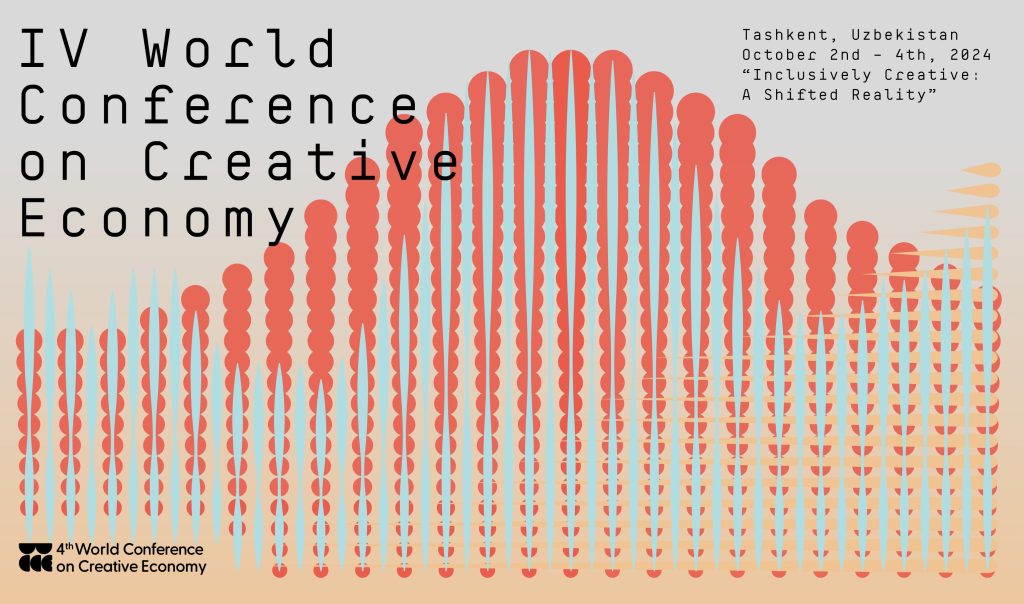
The WCCE 2024 will feature an impressive lineup of speakers, including global and local leaders in the arts, culture, and business sectors. Among them are Gayane Umerova, Founder of the Uzbekistan Art and Culture Development Foundation; Arizona Muse, a renowned fashion icon; and Aaron Rasmussen, Co-founder of MasterClass. Their discussions will explore the intersection of creativity and technology, offering insights into how the world can harness these forces to create a more equitable and innovative future.
The event’s inclusive nature ensures that participants from all sectors, including entrepreneurs, educators, and policymakers, can contribute to shaping the future of the creative economy. By undertaking this initiative, Uzbekistan is fostering a global exchange of ideas and opening doors for new collaborations that will leave a lasting impact on the world’s creative landscape.
(Manish Chand, is CEO, Centre for Global India Insights, a think tank focused on global affairs, and Editor-in-Chief, India Writes Network and India and the World. He is in Tashkent to attend World Conference on Creative Economy)
Author Profile

- Manish Chand is Founder and Editor-in-Chief of India Writes Network (www.indiawrites.org) and India and World, a pioneering magazine focused on international affairs. He is CEO, Centre for Global India Insights, an India-based think tank focused on global affairs.
Latest entries
 India and the WorldDecember 12, 2025India-Italy bonding: Tajani’s visit raises the bar for business, maritime ties
India and the WorldDecember 12, 2025India-Italy bonding: Tajani’s visit raises the bar for business, maritime ties In ConversationNovember 26, 2025G20 is a Force for global Good
In ConversationNovember 26, 2025G20 is a Force for global Good articlesNovember 26, 2025Rescuing G20 from North-South divide: Ubuntu Moment
articlesNovember 26, 2025Rescuing G20 from North-South divide: Ubuntu Moment India and the WorldOctober 27, 2025Modi hails the century of India and ASEAN, backs ASEAN centrality
India and the WorldOctober 27, 2025Modi hails the century of India and ASEAN, backs ASEAN centrality

